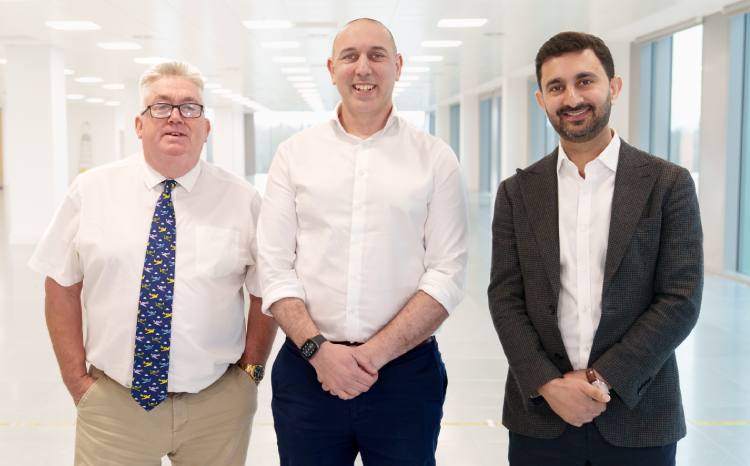Team players
- 1 November 2013

Chief clinical information officers are increasingly looking to work as part of a team of clinical information leads, a second annual survey of CCIOs suggests.
The survey of CCIOs and others in similar roles, which was conducted ahead of the second CCIO Leaders Network Annual Conference next week, also shows that CCIOs are creating their own support structures if they are not in place when they are appointed.
Around half of the respondents to this question (12) said they worked as part of a team or would be doing so shortly. One respondent wrote: “Not up until now, but I have just created this role, and we appointing departmental clinical IT leads.”
Another said: “Since my appointment I have created these roles”, while another commented: “I am building this team at the moment – one for each of the five divisions [of a trust].”
From CCIO to CCIO with support
EHI launched the EHI CCIO Campaign in summer 2011, to urge all NHS organisations to consider appointing a CCIO to lead on IT and information projects. The campaign was backed by ministers and has gone on to become NHS policy.
EHI now hosts the CCIO Leaders Network, which is working to support those CCIOs in post, to encourage further appointments, and to map out a career path for clinicians with an interest in IT and informatics.
The responses to the survey suggest the idea of a CCIO is becoming well understood, and that trusts are moving on to create proper support structures for their clinical leaders.
Two big London trusts – Barts Health NHS Trust and University College London Hospital NHS Foundation Trust – have both said this year that they will appoint a CCIO and clinical information officers.
Dr Charles Gutteridge, a prominent CCIO at Barts Health, told EHI in May that the clinical information officers would help him to connect with clinicians across the East End, make sure that IT and information projects were implemented consistently, and get nurses and other clinicians involved in IT leadership roles.
More CCIOs every year
This year’s survey was sent to members of the CCIO Leaders Network last month. It attracted 35 responses; roughly double the number of responses to the 2012 survey, which, in itself, is an indication of how many more clinical IT leaders are now in post.
Roughly half of those who responded work in the acute or tertiary sector (21 and 6 respectively) but the survey shows that CCIOs are also being appointed to other kinds of organisation.
Nine respondents said they work in primary care, eight in community health services, five in mental health and four in clinical commissioning groups; while others said they worked in an ambulance service, for networks of various kinds, and for suppliers.
Not all of them use the CCIO title, although roughly half do. Other common titles include clinical lead or director of IT or clinical lead or director of informatics.
Unsurprisingly, most respondents have taken up their roles relatively recently, with 19 saying they had been in post for one to five years and 11 for less than a year. However, some stressed that while their title is recent their role is not.
“I was appointed seven years ago, but have been a CCIO since April,” one wrote, while others emphasised that they had a long-standing interest in IT and information.
The survey shows that respondents have, for example, led on electronic patient record or picture archiving and communication system projects, acted as a Caldicott Guardian, or chaired a user group.
Busy, busy, busy
In another indication that the role is both becoming better understood and more formalised, the survey suggests that CCIOs and those doing CCIO-type roles may be having more time allocated to them.
Last year, no respondents said they had five days per week officially allocated to their CCIO role, and only one said they had four days a week set aside for it. This year, two said they had five days a week officially dedicated to the CCIO role, while one said they had four and a half days and another four.
Even so, most CCIOs continue to carry out their roles part time. Seven respondents to this year’s survey said they had half a day per week allocated to CCIO work, five said they had a day, seven a day and a half or two days, and six two and a half days or three days.
In practice, however, it seems that most CCIOs spend more time than allocated on IT and information leadership; only three respondents said they actually spent just half a day on their CCIO role, and four said they spent five days per week on it.
Responses suggest excessive time commitments are likely to arise when trusts are merging or have big electronic patient record projects underway.
One respondent wrote: “It’s a very busy time – merging trusts, deploying two different instances of [a single supplier EPR] on different codes” while another said: “It is a full time role combined with being the clinical lead for the implementation of our new integrated EMR, for which I am also the CSO.”
Other respondents indicated that it can be difficult to combine the CCIO role with ongoing clinical commitments. “It varies, depending on the intensity of other commitments, for example ward work and teaching,” one said, while another said: “I have no regular session, as I could not free myself from the clinical timetable.”
Focused on clinical benefits
If the survey suggests that CCIOs have to juggle their workload, it also confirms last year’s finding that they are senior people with high-level access.
Some 22 respondents said they had been clinicians for more than 20 years and, when asked who they report to, around half said the chief executive and half the medical director. Some 80% of respondents said they felt they had “sufficient authority” to carry out their role “effectively”.
Despite this, CCIOs are very focused on the clinical benefits of their jobs, rather than the purely business or financial benefits they may deliver. Asked to say what “business benefits” they bring to their organisation, one respondent admitted “I am not too interested in this!”
Others cited indirect benefits, such as “delivering better and safer care that is more efficient and ultimately more economic” or likely to deliver “better patient experience.”
Asked what core skills they needed to bring to their role, respondents mentioned understanding of IT, project management, and communication skills. “[I am] able to lead, influence and gain clinical support, which is a high-energy sport,” one respondent wrote.
Another suggested that they had “credibility with both management and clinicians – a foot in both camps” which showed “good influencing skills.”
In line with this, where respondents felt they had gaps in their skills, they tended to be on the technical side.
One admitted he would like more “technical knowledge about health IT languages, standards, systems” and another that he would like more “core computing skills so as not to be bamboozled by IT savvy sales people.”
Providing support courses is something the CCIO Leaders Network will now explore.
However, one survey respondent warned that the CCIO job should not become a “full-time commitment” with “massive training requirements” because this would exclude clinicians who wanted to continue with clinical work.
This tension has always been present in the CCIO role. But it will clearly remain an issue for discussion as CCIOs become more accepted and more formally embedded within the NHS.
The issues raised by the survey will be discussed at the second CCIO Leaders Network Annual Conference, which is co-located with EHI Live 2013 in Birmingham next Tuesday and Wednesday. There is still time to register, and we hope to see you there.
EHI Live 2013 is more than a meeting, more than an exhibition. For anyone involved in the use of information in healthcare it’s a golden opportunity to update knowledge, get answers to questions, meet the experts and think about the future. This year’s conference is free for all visitors to attend.




